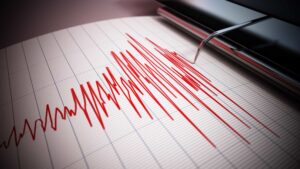With the advancement of science, we can accurately predict the arrival of hurricanes, storms Tropical, flood and even solar eclipses decades in advance.
Satellites, climate models, ocean sensors and supercomputers help us understand Earth’s patterns like never before.
But when it comes to the brute force of nature acting under our feet, as in the case of earthquakes, reality is still very different.
Despite all advances in technology and monitoring, no one can still accurately When or where an earthquake will happen. This limit of modern science shows that, as much as we have gained knowledge about the planet, there are natural forces that continue to be surprising.
Why isn’t it possible to predict an earthquake?
The idea of predicting an accurate earthquake is still a challenge that science has not been able to overcome.
Although advances in geophysics and seismic technology have enabled major improvements in monitoring geological failures and understanding the dynamics of tectonic plates, no current method can accurately point out the moment an earthquake will happen.
This is because rock behavior inside the earth is extremely complex and does not follow a fixed pattern that can be used as the basis for a deterministic forecast.
In practice, what scientists can do is to estimate the likelihood of an earthquake occurs in a given region, based on historical data, known failures behavior and the movement of tectonic plates. This is called probabilistic seismic risk assessment.
For example, if a geological failure has not released energy for a long time, geologists know that there is a chance that an earthquake happens there, but cannot predict if this will happen tomorrow the following year or decades.
The main difficulty lies in the fact that the signs that precede an earthquake are extremely subtle, often nonexistent or indistinguishable from other small natural soil movements.
Even when there are records of small tremors (the so -called “precursor tremors”), they do not always precede a larger earthquake. And in many cases catastrophic earthquakes occur without any detectable notice.
Because of this, most countries invest in early alert and population preparation systems.
These systems do not foresee the earthquake, but detect seismic waves as soon as they start and can send alerts a few seconds in advance. This may seem shortly, but it is enough for elevators to stop, trains to slow down, people leave unstable and siren environments driven in risk areas.
Read more:
How does an earthquake occurs?
An earthquake happens when the pressure between the tectonic plates accumulates to the point where the rock yields, releasing a huge amount of energy.
The way this energy accumulates and is released depends on numerous geological factors that vary in depth, rock type, presence of groundwater, among others.
Lack of direct access to these deep areas also limits the type of sensor that can be used, making it even more difficult to attempt to forecast.
Although the forecast is not yet possible, real -time monitoring has evolved a lot. Today, seismic networks with ultrasound sensors are able to identify even smaller tremors, and satellites help measure millimeter deformations in the terrestrial crust.
With this information, it is possible to create risk maps and guide safer buildings, as well as training populations in high seismic activity zones to know how to react in case of emergency.
The hope that one day it will be possible to predict accurate earthquakes still exist, but experts are unanimous in stating that, until then, the best strategy is to invest in resilience, adequate infrastructure, population education and rapid response systems.
After all, while science seeks answers, the planet follows its natural course and the earthquakes remain one of the most unpredictable and devastating forces on Earth.
With information from Nature.











